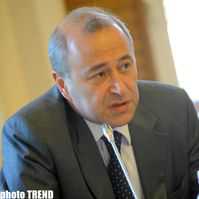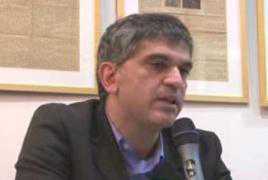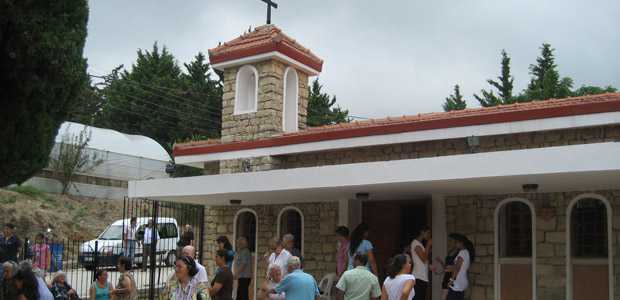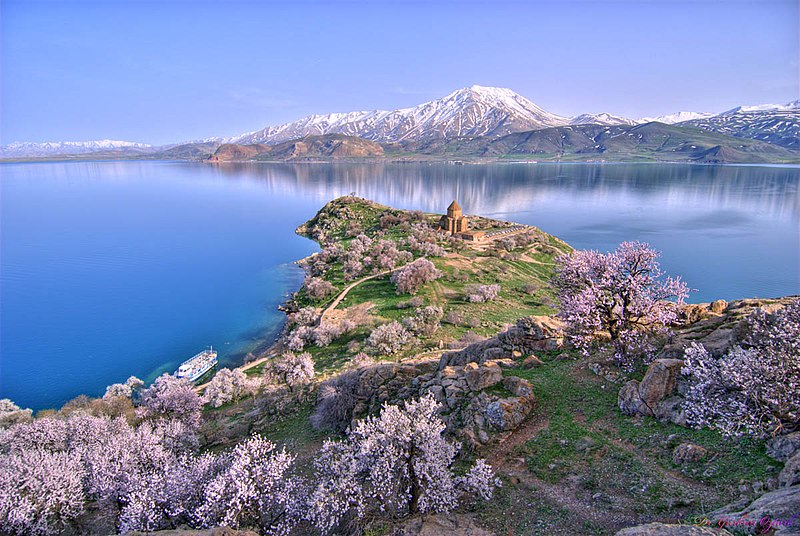Russia has recently made efforts to improve its relations with Azerbaijan, while Turkey has sought to mend fences between Baku and Tehran over Iranian-Armenian relations, an irritant for Azerbaijan.
Iran provides an important economic outlet for Armenia, which suffers from the blockade by Turkey and Azerbaijan. The Islamic Republic supports its Christian neighbor politically as it feels its large Azerbaijani minority makes it vulnerable in relation to Baku. Ethnic Azerbaijanis are the largest minority in Iran, comprising about a quarter of the population.
Foreign ministers of Turkey, Azerbaijan and Iran met two weeks ago in the northwestern Iranian city of Urmia to try to improve relations.
Efforts by Russia, another country with close relations with Armenia, to improve its ties with Azerbaijan have not gone unnoticed in Ankara, where Turkish diplomats note that the war in Georgia in 2008 has affected Moscow’s overall policies in the Caucasus. Russia wants to improve its relations with Azerbaijan in order to further encircle Georgia, and to create another avenue for reaching out to Iran, the diplomats said. A recent agreement signed between Russia, Azerbaijan and Iran is seen as another indicator of Moscow’s new policies.
The three countries agreed in February to form a joint venture that will be responsible for constructing a 350-kilometer railroad line from Qazvin, northwest of Tehran, to Rasht and the Caspian Sea port of Astara in Azerbaijan. The new line will drastically reduce the distance by rail between Tehran and Baku, while creating a much shorter route between Russia and Iranian ports.
Russia has meanwhile been equally active in trying to find a solution to the ongoing Armenian-Azerbaijani conflict over the disputed Nagorno-Karabakh region, Turkish sources told the Hürriyet Daily News & Economic Review. “Not all the details are shared with us. But we understand that Russian diplomacy has brought some creative ideas to overcome the deadlock,” one source said.
Trilateral meeting held in Turkish
When Azerbaijani Foreign Minister Elmar Memmedyarov started to address his Turkish and Iranian counterparts in English at their first trilateral meeting, Turkish Foreign Minister Ahmet Davutoğlu immediately interrupted, asking him to speak in his native language.
Turks can understand the Azeri dialect, which is believed to be spoken as a first language by about 20 percent of the Iranian population. When Memmedyarov started to speak in his native language, all participants with the exception of two people from the Iranian delegation put aside their headphones for simultaneous translation.
The meeting two weeks ago was held in the Iranian city of Urmia, which is also the capital of the West Azerbaijan Province.
“The fact that the trilateral meeting took place in Urmia has a very symbolic importance,” a Turkish official told the Hürriyet Daily News & Economic Review.
Turkey wanted to convey to Iran the message that its Azerbaijani minority is not a liability but an asset in its relations with Baku.
Ankara also wanted to send the message to both Baku and Tel Aviv that Turkish-Azerbaijani strategic relations cannot be replaced with Israeli-Azerbaijani ones. The strain in Turkish-Azerbaijani ties due to Ankara’s effort to normalize its relations with Yerevan has resulted in improved cooperation between Tel Aviv and Baku.
Despite the importance of these symbolic messages, the Turkish government would like to see concrete projects materialize between the three countries.
“An economic committee will be set up for the development of economic and trade relations through joint ventures, modernization of border gates and facilitation of customs and application of preferential trade between Turkey, Iran and Azerbaijan,” read the joint communique released following the meeting.
The U.N. sanctions applied against Iran due to its controversial nuclear program will, however, undoubtedly place serious constraints on trilateral economic cooperation
 Turkey and Azerbaijan agreed on purchase and sale part of the intergovernmental agreement, adding that, however, the parties needed time to work more on transit passages part of the agreement.
Turkey and Azerbaijan agreed on purchase and sale part of the intergovernmental agreement, adding that, however, the parties needed time to work more on transit passages part of the agreement.




